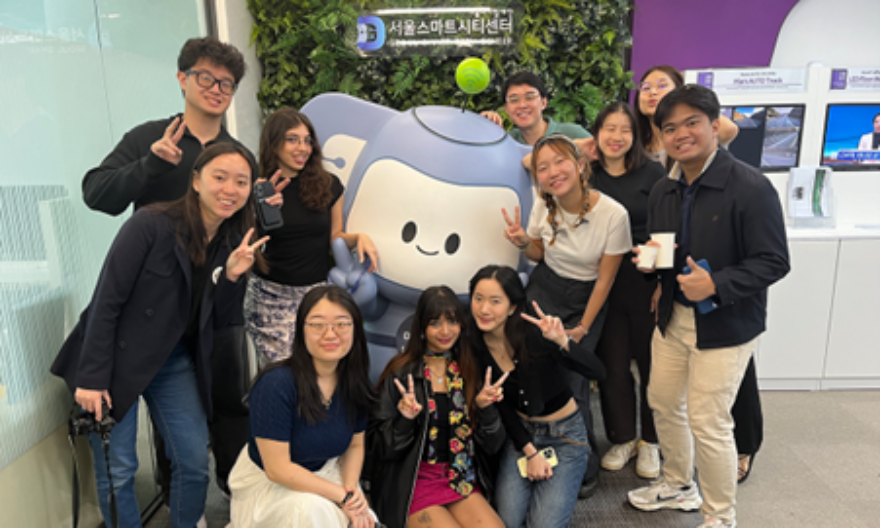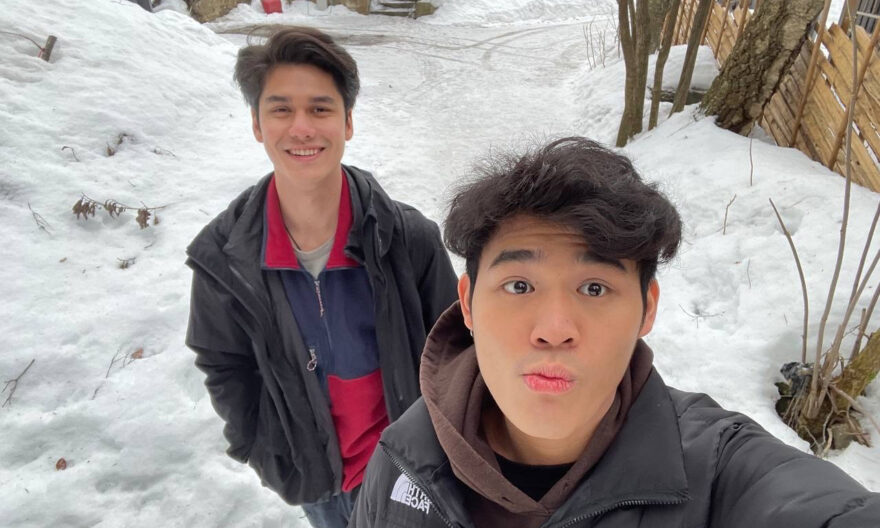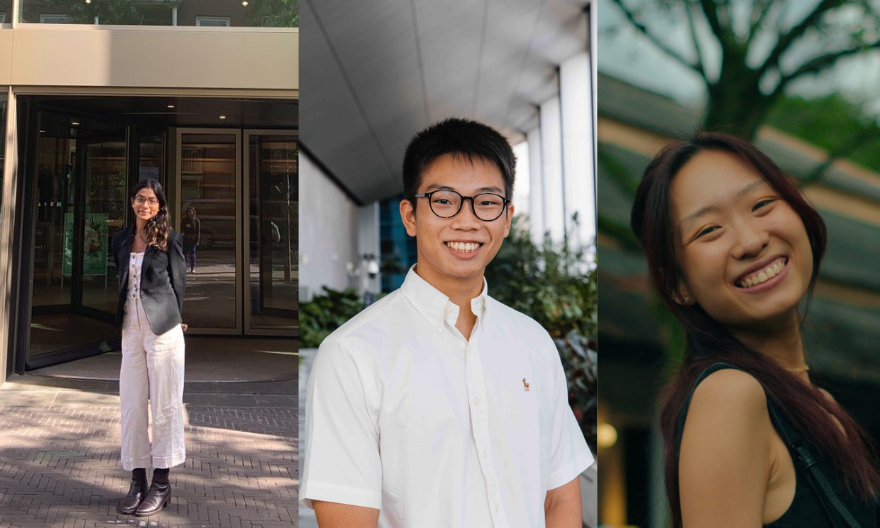Yale-NUS graduates: Charting paths to graduate success
Yale-NUS College graduates demonstrating the impact of their interdisciplinary education on their graduate school pursuits
At Yale-NUS College, the liberal arts and sciences curriculum encourages students to pursue intellectual excellence and strive to bring about positive change in society. We spoke to four graduating seniors to learn more about how their time at Yale-NUS has prepared them for their post-graduate studies and influenced their chosen pathways.
Afiya Dikshit Syed (Class of 2024) has completed her Master in Public Policy (MPP) at the Lee Kuan Yew School of Public Policy (LKYSPP) as part of the College’s Concurrent Degree Programme (CDP) with LKYSPP. Students apply for the CDP in their third year at Yale-NUS. Upon being accepted to the CDP, they take classes from both schools in their fourth year, graduating with a bachelor’s degree from Yale-NUS, before finishing their master’s degree at LKYSPP in their fifth and final year.
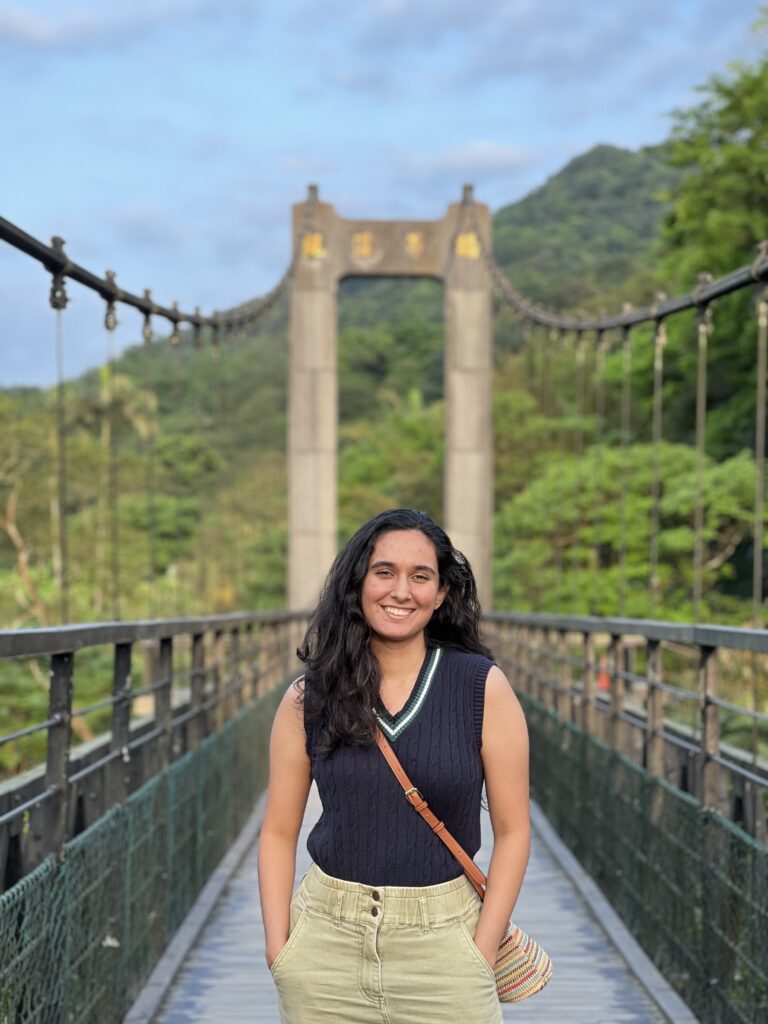 Image provided by Afiya Dikshit Syed.
Image provided by Afiya Dikshit Syed.
Initially attracted by the fast-tracked Master’s programme, Afiya’s reasons for pursuing the CDP evolved as she engaged with diverse perspectives and gained practical insights. The programme offered her a unique opportunity to learn from peers with varied professional backgrounds, enriching her understanding of public policy.
“For me, the rigour that Yale-NUS instilled in me was essential,” said Afiya. She appreciated the encouragement of a strong work ethic which positioned her as a capable student among peers with more experience. “I found Yale-NUS students were some of the most well-informed and aware students in the class. We often helped our classmates understand the context and implications of a lot of the classroom discussions. This also cemented us as capable and well-performing students despite having little to no experience in comparison to others.”
Afiya’s most valuable takeaway from Yale-NUS was the ability to integrate theoretical knowledge with practical applications. “Theory was something that I had been learning since high school, but practice and application was another ball game altogether,” she explained.
This approach was particularly beneficial in her course at LKYSPP, where she applied the concepts learned at Yale-NUS to real-world policy challenges. Afiya added, “To tie it all up, I also enjoyed the connections I made. On one end, it’s perspectives and learnings, but on the other, it is lifelong friends and colleagues who have been supportive throughout the entire process and have also been great sources of advice and guidance.”
———
Andrew Siow Wen Jie (Class of 2024) will be heading to Imperial College London to pursue a Master’s in Artificial Intelligence (AI). His interest in AI, particularly in language models, developed during his final year at Yale-NUS. This was fuelled by recent advancements in AI and the need for responsible application of these technologies.
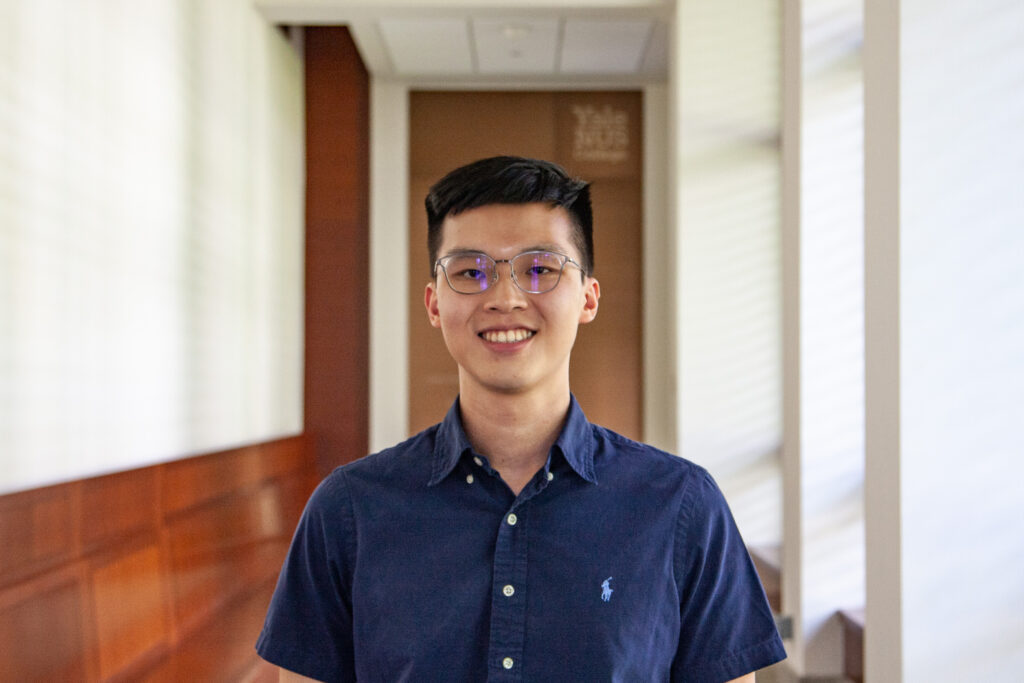 Image provided by Andrew Siow Wen Jie.
Image provided by Andrew Siow Wen Jie.
Reflecting on his time at Yale-NUS, Andrew emphasised that doing a capstone thesis in machine learning optimisation was really beneficial for him because it trained him to learn independently and find answers to important conceptual questions, as well as the importance of effective communication, which he developed through numerous presentations and his capstone project.
Andrew reflected fondly on how Yale-NUS prepared him for life after graduation by “being a space where I could explore and develop my personal and professional interests.
He said, “I came into Yale-NUS interested in current affairs, but in the Quantitative Reasoning course, I quickly found that I enjoyed statistics and that I could apply them to the areas I was interested in, such as election polling. That was how I got into data science, and consequently, AI.”
———
Hwang Sanghyun (Harry) (Class of 2024) will be pursuing a PhD degree in Biophysics at Johns Hopkins University. He is also the recipient of the Carlson Fellowship, a prestigious fellowship awarded to outstanding applicants in memory of Francis Dewey Carlson. Harry’s current research interest is using structural methods to study chromatin remodelers.
During his time at Yale-NUS College, Harry developed his interest and skills in biophysics and biochemistry. Notably, he was awarded Yale College Dean’s Research Fellowship in his third year to study the DNA packaging mechanism in Kaposi’s sarcoma-associated herpesvirus. Harry won the Prize for Outstanding Capstone Project in Physical Sciences for 2024.
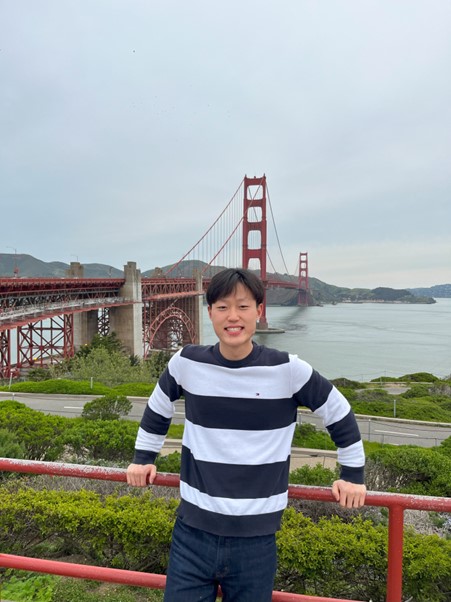 Image provided by Hwang Sanghyun (Harry).
Image provided by Hwang Sanghyun (Harry).
Harry appreciates the interdisciplinary nature of the Physical Sciences major at Yale-NUS, which allowed him to approach problems from various angles. He shared, “I will not be the scientist I am today without my education at Yale-NUS College. The Physical Sciences major is inherently interdisciplinary in nature, where chemistry, physics, math, and even some biology intersect. This helped me understand problems from so many different angles. I am deeply grateful for all the dedicated faculty members who always challenged me to think critically, as well as fellow students, from whom I have learned so much about approaching problems.”
Harry believes his educational experience at Yale-NUS has better prepared him for the rigorous demands of a PhD programme and equipped him with the skills needed to excel in his research.
———
Chin Jia Yi, Ashley (Class of 2024) will be pursuing an MPhil in Social Anthropological Research at Cambridge University. Ashley chose this programme to pursue her newfound passion for the Anthropology of Religion, which she discovered during her final year at the College. Her decision was solidified by Cambridge’s expertise in this field and offer of the Hong Leong—Lee Kuan Yew Masters Scholarship.
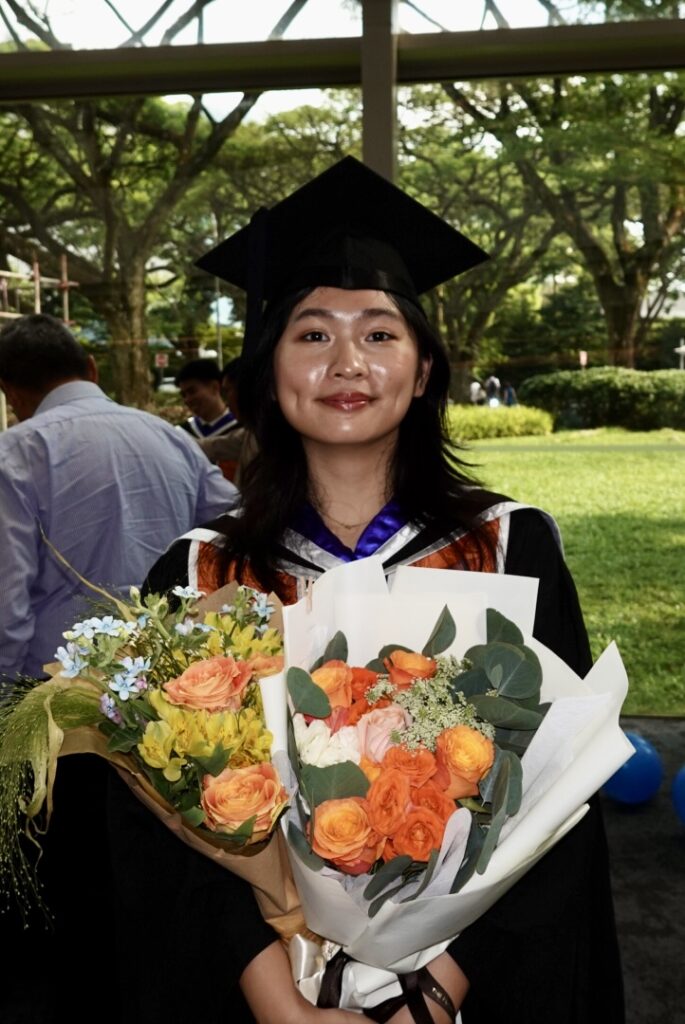 Image provided by Ashley Chin.
Image provided by Ashley Chin.
Ashley credited Yale-NUS professors like Lau Ting Hui and Zachary Howlett for their support and inspiring her love for anthropology. She also highlighted the impact of professors Neena Mahadev and Stuart Strange, who deepened her understanding of the anthropology of religion. “I have to thank Asst Prof Mahadev and Asst Prof Strange for opening up a new lens through which to see the world. It’s become an occupational hazard – now when I travel, I like to linger at temples and cathedrals and immerse in all the visual and auditory details.”
Looking ahead, Ashley plans to focus her dissertation on spirit cultures in Singapore and explore career paths in brand strategy or independent journalism. “Four years with an incredible, diverse cohort has definitely expanded my understanding: through candid conversations and cultural conversations, I got to learn about lived realities around the world.” Her experiences at Yale-NUS have prepared her well for the academic challenges at Cambridge and beyond.
———
Overall, the graduating seniors appreciate the intellectual curiosity and dedication fostered at Yale-NUS College, and hope that with the deeper knowledge gained through graduate school, they would be better positioned to make meaningful contributions to society.

